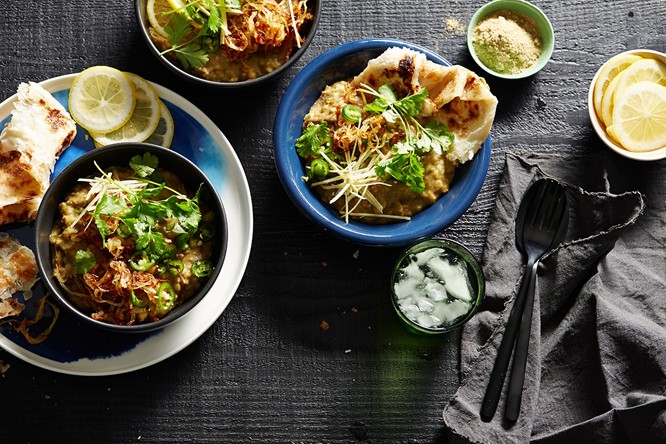
Hiring cooks does not mean women, or men, are not homely any more. It is a social change, one that we must accept, and see cooking as an emerging, respected profession

Once upon a time I used to cook up things like a mean deg of nihari, loads of bihari kabab, and the genuinely ghutta hua haleem for a dinner for 30 people quite frequently and without panicking. If I had a helper to cut up the onions and vegetables and wash the meat and do the dishes, I was good to go, taking smugly all the compliments that came my way.
But somewhere along the road, priorities changed. It was not just the fact that I became more invested in my profession. It was also not just me. The emergence of "cooks" came to the fore.
No, these were not the live-in Khan-e-Samaan breed of cooks that our mothers and grandmothers had who used to manage the entire kitchen and cater to all food-based needs of big families. These are part-timers. A few hours a day or a week. Neatly stacked storage boxes of salan and kabab split into portions in the fridge and freezer, also labelled for convenience. This is what the modern-day cooks on urban Pakistan are like.
Often one doesn’t have one but actually many. I have one in my list of contacts in my phone that is for usual day-to-day cooking -- the chawal, daal, sabzi, qeema type of stuff. Then there’s the one you call when there is a dinner at home -- biryani, kabab, qorma and the likes of these. But then there’s the super fancy one -- the CV or intro says, "can make Chinese, Thai and oriental food". I have not utilised services of all but there is a comfort in knowing they are there.
In a fast-changing social landscape, the larger joint families have been replaced by nuclear families. In these urban families crunching under inflation, the woman no longer has time to deliberate about the daily menu, then cook it, and then serve it. She is as much an earning member of the household as her husband. Many a times, even the children, once they are young adults, are working part-time.
The good thing that has come out of this is that unnatural expectations from women to focus their lives only around the kitchen and its periphery are decreasing. But that also means cooks are an integral part of life. However, full-time cooks are expensive in more ways than one. Not only is it the salary, but it is also the unsaid pressure to get food cooked daily in order to justify why you have that full-time cook.
It is an expensive proposition to house domestic staff. Thus, part-time cooks seem like a great option -- both for the employer and the employee. For the employee as being able to work in more than one house allows him or her more flexibility of timings, and is mostly a more lucrative option.
A faster-paced lifestyle also means we are less discerning about many things -- we don’t get our masalas pounded at home; we are ready to buy ‘heat and eat’ items, and we use a lot of easy-to-cook meat options, mainly poultry. Fried onion packets have found a way in our homes, as have frozen chopped vegetables. Plus we eat out way more than our counterparts a few generations ago.
Read also: Life is delicious with Khalid around!
Pakistanis are serious about their food so it is not that cooking has taken a back seat. However, other more pressing things have taken precedence. We still cook, but now it is more sporadic, and limited to certain specialties to remind our families and ourselves that we still have not forgotten how to make food. Hiring cooks does not mean women, or men, are not homely any more. It is a social change, one that we must accept, and see cooking as an emerging, respected profession.